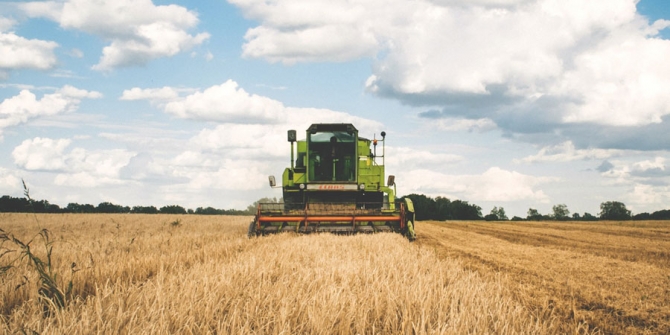Working with unpredictable livestock, using heavy machinery, in remote areas and in potentially unfavourable weather conditions - often alone - it may come as no surprise that agriculture continually tops the list of hazardous industries in the UK.
Despite accounting for just 1% of the UK’s employment, the industry has a fatality rate 18 times higher than most other sectors and makes farmers among the most at-risk workers in the country, second only to construction workers in terms of total annual fatalities. Statistically, construction work is five times safer than farm work with an annual average two deaths per 100,000 in construction, compared to 10 per 100,000 in farming.
Just weeks ago, farm safety procedures were cast into the spotlight following the deaths of two farm workers in separate accidents within the space of just one week. On April 17th, a man in his 40s died on a farm in Bury St Edmunds due to an accident with a stone separator, whilst days later a 58-year-old farmer was trampled to death by a herd of cows.
The latest 2017/18 report from the Health and Safety Executive reveals worrying figures that 33 workers died from farming and other agriculture-related activities last year, four more than in 2016. The main causes of fatalities included workers being killed by animals, struck by moving vehicles, falling from height and being trapped by a collapsing objects. (resource http://www.hse.gov.uk/agriculture/resources/fatal.htm)
Perhaps most worrying about these statistics is that, after two decades of steady decline, the fatality rate for farm accidents is now beginning to plateau, suggesting more needs to be done to effectively educate, train and protect those working in the industry and safeguard lives.
As great strides have been taken to improve the safety of all workers nationally over recent years, the issue of the dangers of farm working continues to gain national momentum. Now, for the sixth year, National Farm Safety Week has been launched to continue cultivating the seed of safety for those working in this hazardous industry.
The event aims to reduce the number of fatal accidents on farms by encouraging farmers to check machinery, whilst educating them about the dangers they face and how to avoid taking unnecessary risks at work.
It is a fact that many of those in the industry work alone and, whilst being a lone worker does not in itself increase the risk of injury or death, understanding the ranges of lone worker protection available is a vital component of the wider work being done to improve safety standards as a whole for those in the industry who face myriad potential hazards on a daily basis.
It would be irresponsible to suggest that even the most sophisticated lone worker protection could prevent all farm accidents, especially when factors such as unpredictable animal temperament or lack of suitable training for heavy machinery is thrown into the mix.
However, what it can do is ensure that should the worst happen, an alarm will flag up the situation immediately so suitable help can be sent to the distressed worker’s exact location.
There are many devices and solutions available that are suitable for those working in such conditions, including Man Down devices that can automatically detect falls and send for help, solutions with dedicated panic alarms that connect immediately to a 24/7 Alarm Receiving Centre, and those that use GPS and other sophisticated locating technology to ensure responders have accurate details of where workers are, even in the most remote areas with little or no mobile phone signal. A mobile app wouldn't be suffiecient in an area like this, but a cheap lone worker alarm would definately be worth the investment.
It is no secret that farm working is an industry fraught with hazards, but everyone should enjoy the chance to work with the peace of mind that their safety is paramount. Ensuring all of those working in agriculture have adequate lone working procedures, policies and solutions in place is just one element of the crucial work that needs to be done to keep them safe, even in this most dangerous of industries.

